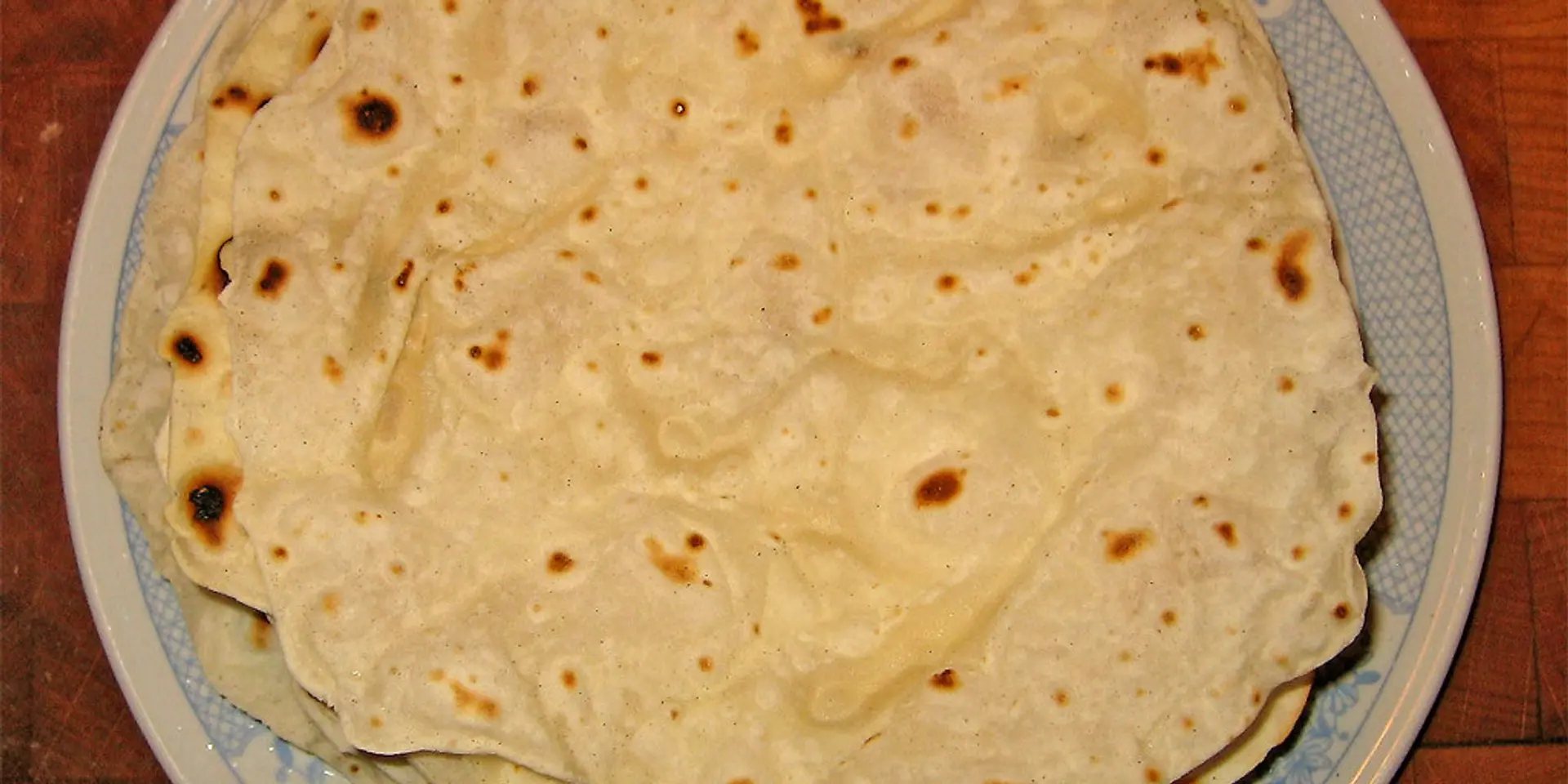Yufka bread is a good source of carbohydrates and protein, and it is low in fat. It is also relatively low in calories, making it a good choice for those watching their weight.
What is Yufka Bread?
Updated:

"YUFKA: pizza turca" by fugzu is licensed under CC BY 2.0. To view a copy of this license, visit https://creativecommons.org/licenses/by/2.0/?ref=openverse.
Yufka bread is a type of Turkish flatbread that is made with flour, water and salt. It is usually round or oval in shape and has a thin, crispy texture.
Yufka bread is often used as a wrap for various fillings, including meat, vegetables and cheese. It can also be served plain or topped with butter or honey.
What is the history of Yufka bread
Yufka bread has been a staple in Turkish cuisine for centuries. The exact origins of the bread are unknown, but it is thought to have first appeared during the Ottoman Empire.
Yufka bread was traditionally made by stretching and rolling out a thin dough by hand. Today, it is still made using this method in some parts of Turkey. However, most yufka bread sold in stores or bakeries is machine-made.
Ingredients in Yufka bread
The main ingredients in yufka bread are the standard basic ingredients in bread making are flour, water and salt.
Yufka bread nutritional information
One large yufka bread (about 28 grams) contains approximately:
- Calories: 70
- Fat: 1 gram
- Saturated fat: 0 grams
- Monounsaturated fat: 0 grams
- Polyunsaturated fat: 0 grams
- Trans fat: 0 grams
- Cholesterol: 0 milligrams
- Sodium: 10 milligrams
- Potassium: 20 milligrams
- Carbohydrates: 15 grams
- Fiber: 1 gram
- Sugar: 0 grams
- Protein: 2 grams
Yufka bread is a good source of carbohydrates and protein, and it is low in fat. It is also relatively low in calories, making it a good choice for those watching their weight.
How to make Yufka bread
Yufka dough is typically made with all-purpose flour, but it can also be made with whole wheat or rye flour. The dough is kneaded until it forms a soft, pliable ball. Then, it is left to rest for 30 minutes to allow the gluten to develop.
After resting, the dough is stretched out into a thin sheet using either your hands or a rolling pin. The sheet of dough is then baked on a hot griddle or in a oven until it is golden brown and crispy.
Yufka bread recipes
There are many different ways to enjoy yufka bread. Here are some popular recipes:
Yufka bread with feta cheese and spinach: This recipe is a classic Turkish dish called Ispanakli Yufka. It features yufka bread stuffed with feta cheese and spinach.
Yufka bread with lamb and vegetables: This recipe features yufka bread stuffed with a lamb and vegetable filling.
Yufka bread with potato and egg: This recipe is a traditional Turkish breakfast dish called Menemen. It features yufka bread topped with a potato and egg scramble.
Yufka Bread FAQ's
Yufka dough is typically made with all-purpose flour, but it can also be made with whole wheat or rye flour. The dough is kneaded until it forms a soft, pliable ball. Then, it is left to rest for 30 minutes to allow the gluten to develop. After resting, the dough is stretched out into a thin sheet using either your hands or a rolling pin. The sheet of dough is then baked on a hot griddle or in an oven until it is golden brown and crispy.
Yufka bread can be stored at room temperature in a dry, airtight container for up to one week. It can also be frozen for up to three months.
Yes, yufka bread can be reheated in the oven or on a griddle. However, it is best served fresh and crispy.
One large yufka bread (about 28 grams) contains approximately 70 calories.
Some of the potential health benefits associated with yufka bread include: improved digestion, lower cholesterol levels, lower risk of heart disease, and regulated blood sugar levels.
Yufka bread is made with flour, which contains gluten. Therefore, it is not suitable for those who are allergic or sensitive to gluten.
Yes, yufka bread is vegan as it does not contain any animal products.
No, yufka bread is not keto-friendly as it contains carbohydrates. However, there are keto-friendly flatbread options available that are made with low-carbohydrate flours, such as almond flour or coconut flour.
Yufka bread is available at most Turkish supermarkets or online.
